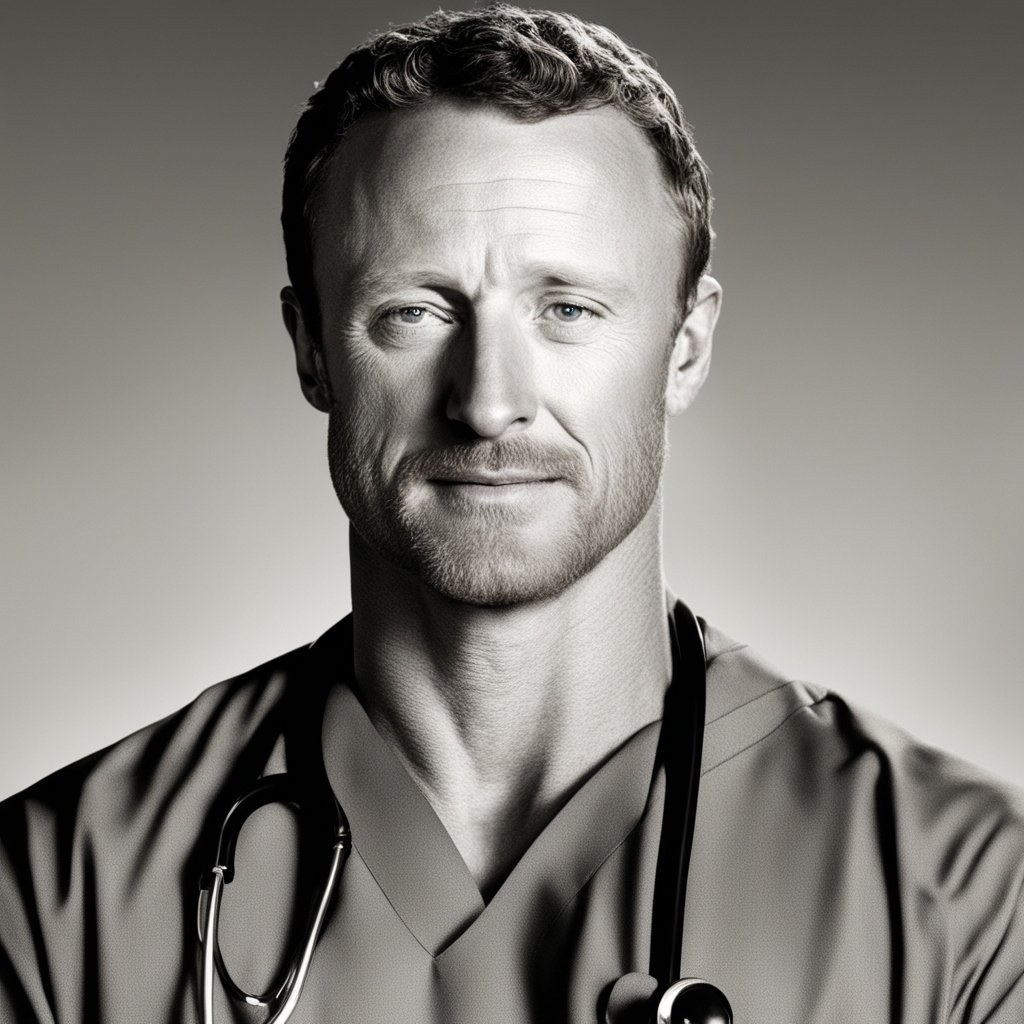- Transitioning from the battlefield to the hospital was a challenge, but the principles of saving lives remain the same.
- Military medicine taught me to make quick, decisive actions under pressure, a skill that’s invaluable in civilian trauma surgery.
- In the military, we’re trained to adapt and overcome; those lessons are essential in the ever-changing landscape of civilian surgery.
- The discipline and teamwork ingrained in military medicine have profoundly shaped my approach to civilian trauma care.
- Moving from a warzone to a hospital brought unique challenges, but the drive to help and heal remains constant.
- Living with PTSD has been a battle, but acknowledging it was the first step toward healing and resilience.
- My experiences with PTSD have taught me the importance of mental health support for medical professionals.
- Managing PTSD while maintaining a demanding career is a daily challenge, but it’s one that has made me a stronger surgeon and person.
- Talking about my PTSD isn’t easy, but it’s essential to break the stigma and encourage others to seek help.
- PTSD doesn’t define me, but it has shaped my perspective on life, work, and the importance of mental health.
- Trauma surgery is about making split-second decisions that can mean the difference between life and death.
- In trauma surgery, every second counts, and the pressure to perform can be immense but incredibly rewarding.
- The chaos of trauma surgery demands a calm and focused approach to save lives in critical moments.
- My dedication to trauma surgery stems from the profound impact we have on patients during their most vulnerable times.
- Trauma surgery is a relentless field, but the opportunity to save lives in critical moments drives me every day.
- Being a leader in the OR means setting an example of excellence, discipline, and compassion.
- Mentorship is about guiding young surgeons to not only master their craft but to also navigate the challenges of the profession.
- Effective leadership in surgery is built on trust, respect, and the ability to inspire and support your team.
- Mentoring the next generation of surgeons is a responsibility I take seriously; their growth reflects our legacy.
- Leadership in the OR isn’t just about skill; it’s about fostering a culture of continuous learning and improvement.
- Balancing the demands of trauma surgery with personal life is an ongoing challenge, but it’s essential for overall well-being.
- Duty to my patients is paramount, but I’ve learned that personal relationships are just as crucial for a fulfilling life.
- The high stakes of trauma surgery often spill over into personal life, requiring constant effort to maintain balance.
- Finding harmony between work and personal life demands discipline and the support of loved ones.
- The challenges of balancing my career and personal life have taught me the importance of setting boundaries and prioritizing self-care.
- Advancements in trauma surgery are revolutionizing how we approach and treat life-threatening injuries.
- Innovative techniques in trauma care mean we can save more lives and improve recovery outcomes for our patients.
- Staying at the forefront of trauma surgery requires a commitment to learning and integrating new technologies.
- Our field is constantly evolving, and embracing innovations is key to providing the best care possible.
- Contributing to advancements in trauma surgery is about pushing the boundaries of what’s possible to enhance patient care.
- The ethics of war and medicine are deeply intertwined, requiring careful navigation of moral complexities.
- In both military and civilian settings, ethical dilemmas challenge us to uphold the highest standards of care and integrity.
- Navigating ethical challenges means balancing the duty to save lives with the principles of medical ethics.
- The moral complexities of war have shaped my approach to ethical decision-making in civilian trauma care.
- Facing ethical dilemmas head-on is crucial for maintaining trust and integrity in both military and medical practices.
- Emotional resilience is critical for surgeons, enabling us to handle the pressures and stresses of the OR.
- Building emotional resilience involves acknowledging our vulnerabilities and finding strength in our experiences.
- In trauma surgery, resilience is the foundation that allows us to perform under intense pressure and save lives.
- Emotional resilience isn’t just about enduring stress; it’s about thriving in the face of adversity.
- The demands of surgery require us to be emotionally resilient, constantly adapting and growing from our experiences.
- Effective trauma care relies on seamless collaboration between different medical disciplines.
- Interdisciplinary teamwork in trauma care ensures comprehensive treatment and better patient outcomes.
- Collaboration between specialties brings together diverse expertise, enhancing our ability to save lives.
- Interdisciplinary cooperation is the cornerstone of modern trauma care, requiring clear communication and mutual respect.
- Working with a multidisciplinary team in trauma care highlights the importance of each role in delivering holistic patient care.
- Advocating for veterans means fighting for the healthcare they deserve and addressing their unique medical needs.
- My experience in the military drives my commitment to improving healthcare for veterans and their families.
- Supporting military healthcare involves addressing both physical and mental health challenges faced by veterans.
- Advocacy for veterans is about ensuring they receive the respect, care, and support they’ve earned through their service.
- My efforts in advocating for veterans aim to create a healthcare system that honors their sacrifices and meets their needs.
The Transition from Military Medicine to Civilian Surgery
PTSD and Mental Health: A Surgeon’s Personal Journey
The Importance of Trauma Surgery: Saving Lives in Critical Moments
Leadership and Mentorship in the OR
Balancing Duty and Personal Life: The Challenges of a Trauma Surgeon
Innovations and Techniques in Trauma Surgery
The Ethics of War and Medicine: Navigating Moral Complexities
The Role of Emotional Resilience in Surgery
Interdisciplinary Collaboration in Trauma Care
Advocacy for Veterans and Military Healthcare








